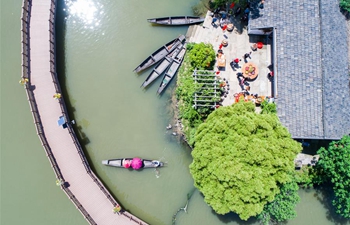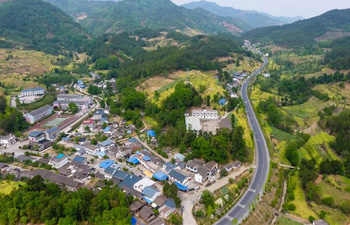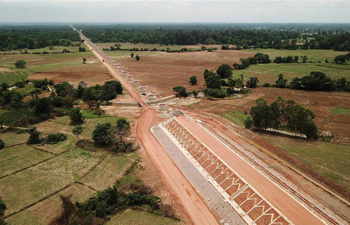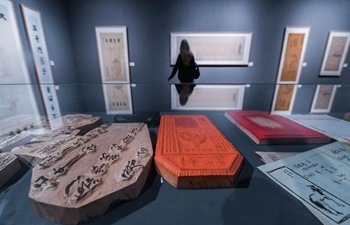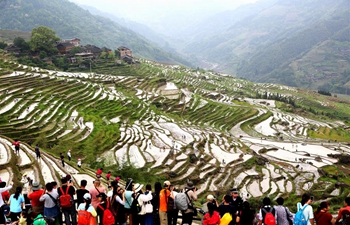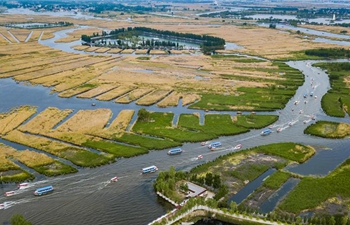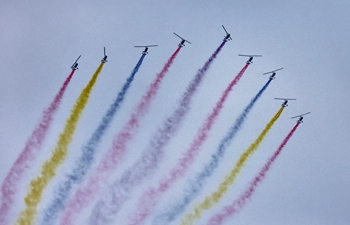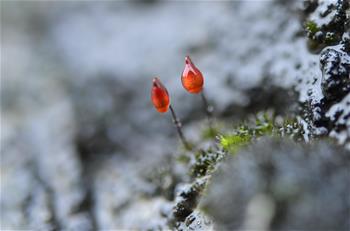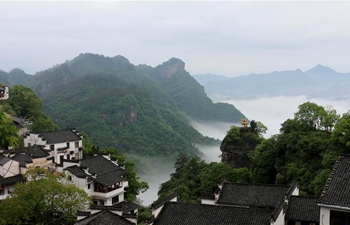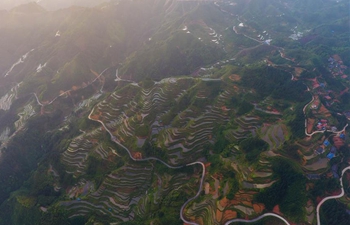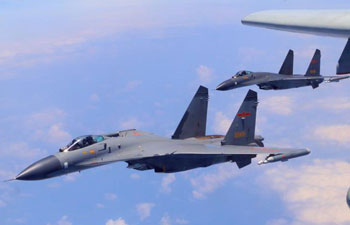
Sudanese President Omar al-Bashir (R) and Ethiopian Prime Minister Abiy Ahmed attend a joint press conference in Khartoum, Sudan, on May 3, 2018. Sudan and Ethiopia on Thursday reiterated their commitment not to harm Egypt's water interests with the establishment of the Grand Ethiopian Renaissance Dam (GERD). (Xinhua/Mohamed Khidir)
KHARTOUM, May 3 (Xinhua) -- Sudan and Ethiopia on Thursday reiterated their commitment not to harm Egypt's water interests with the establishment of the Grand Ethiopian Renaissance Dam (GERD).
Sudanese President Omar al-Bashir and Ethiopian Prime Minister Abiy Ahmed made the pledge at a joint press conference in Khartoum at the end of Ahmed's visit.
Al-Bashir vowed that the GERD would be a beneficial project for the three countries.
"We reiterated our firm commitment that the water share of our brothers in Egypt will not be affected by the establishment of the GERD. We agreed to make the Grand Ethiopian Renaissance Dam a project for enhancing the joint benefits of the three countries," said al-Bashir.
Ahmed said they also discussed "the equitable and reasonable utilization of the Nile water."
"All investments must be done beneficially for Ethiopia, Sudan and Egypt. We don't have any intention to harm Sudan or Egypt," the Ethiopian prime minister said.
Meanwhile, al-Bashir issued a decision pardoning all the Ethiopians who have earlier been arrested in Sudan for committing offences or those who have been sentenced.
Ahmed on Thursday concluded a two-day visit to Sudan during which he held talks with Sudanese leaders, focusing on bilateral cooperation and the issue of GERD.
The last round of tripartite talks on GERD ended in April without reaching an agreement on the technical report prepared by French firms on the potential impact of the dam.
In December 2017, Egypt proposed to have the World Bank as a neutral party on the tripartite technical committee, but Ethiopia refused.
The GERD project, which costs 4.7 billion U.S. dollars, is now 64 percent complete. Ethiopia hopes it will provide a constant supply of clean and affordable power and accelerate its shift from an agricultural economy to an industrial powerhouse.
Ethiopia and Sudan eye massive benefits from the GERD construction, while Egypt is concerned that it might affect its 55.5-billion-cubic-meter annual share of the Nile River water.




